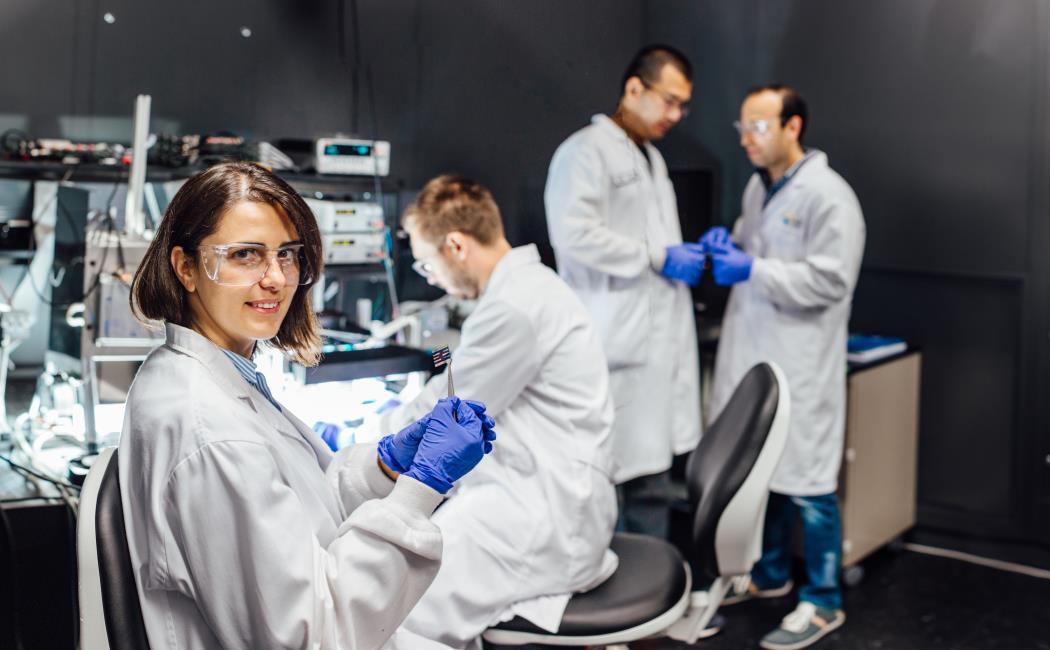
05 February, 2019
For 18 years, MIT Technology Review has been presenting a list of innovators under 35. Once male-dominated, for the first time in 2018, the list showcased more women than men and included KAUST Assistant Professor of Material Science and Engineering Derya Baran. Baran was named as one of the "Innovators Under 35 in the MENA region."
Baran and her team founded startup iyris, developing photovoltaic technology that allows any window to become a transparent solar panel. The work is the result of more than 10 years of research, and the team, which includes Nicola Gasparini, Joel Troughton and Daniel Bryant, aims to pave the way towards energy-efficient cities of the future.
"Our idea around electricity generating transparent windows has been a dream in the next generation photovoltaic community for a long time and a lot of work has already been done. But our achievement makes a window electricity-generating and heat blocking [while] at the same time keeping it transparent to your eyes," Baran said.
"Here, cooling and air conditioning is a growing issue. With our new technology, greenhouses and tall buildings can reduce their heat load and utilize the generated electricity for cooling for free with energy from the sun!" she explained.
Before joining the KAUST Solar Center, Baran studied and worked at the Middle East Technical University in Turkey, the Friedrich-Alexander University in Germany and Imperial College London, and said she feels like her journey has come full circle.
"I am humbled and honored to be awarded as one of the Innovators Under 35 for the MENA region. I feel for the first time that my story that started in Turkey [and] then spanned four countries continues in Saudi Arabia. It gives me hope for future opportunities that recognize this part of the world," Baran said.Baran also works on engineering smart materials for organic electronic applications such as solar cells, thermo-electrics, photodiodes and novel optoelectronic devices. These will be utilized in the future for energy-efficient devices and autonomous wearable technologies.
"I would like to be one of the leaders in the printed optoelectronic devices in the future, which I see consisting of smart materials and devices," she said. "I would like to bring unique solutions to energy-related issues that will have [an] impact on humanity in the future."